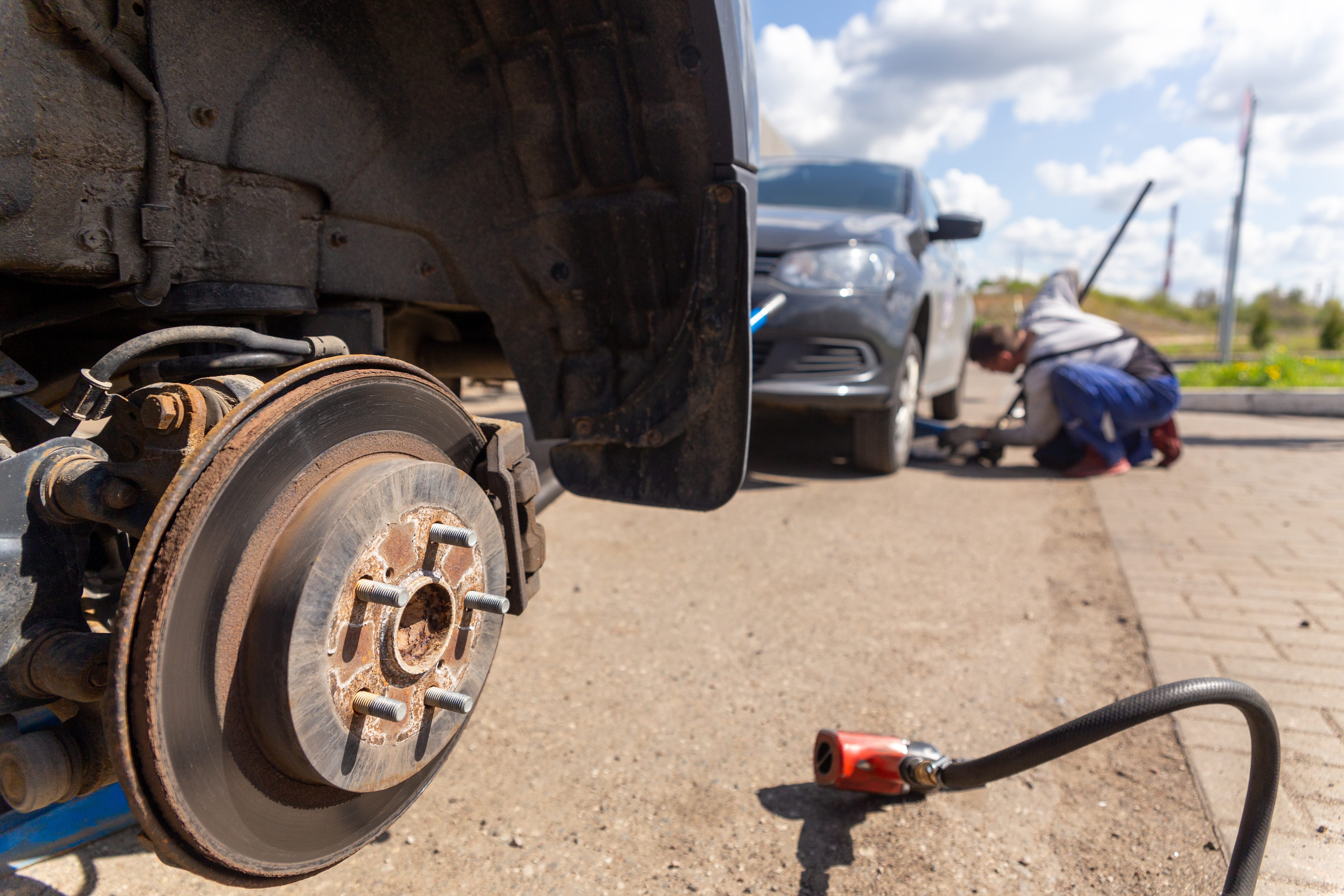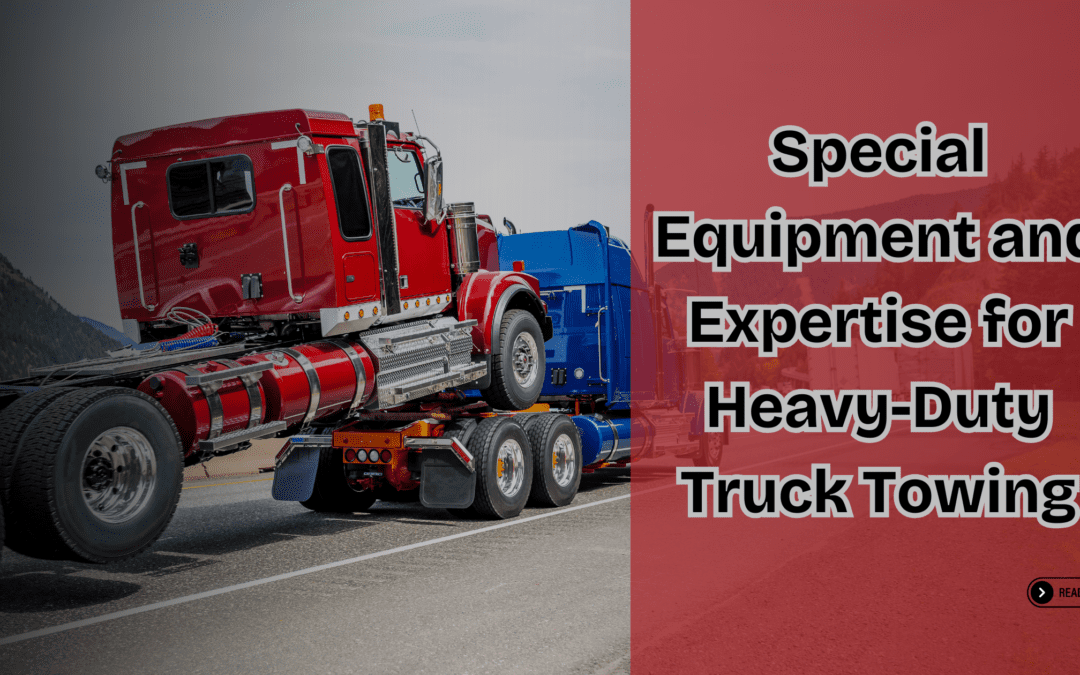- Heavy-duty towing requires specialized equipment like hydraulic systems, winches, and lowboy trailers to safely transport large commercial vehicles in challenging conditions.
- Expert tow truck operators play a critical role, utilizing advanced training, safety protocols, and problem-solving skills for secure vehicle recovery.
- Interstate 70 Towing & Recovery provides 24/7 professional towing services, ensuring rapid response, seamless coordination, and minimal downtime for businesses.
When a semi-truck breaks down on a busy highway, quickly clearing the obstruction helps prevent traffic disruptions and potential accidents. Unlike standard towing, heavy-duty towing requires specialized equipment and highly skilled operators to handle the immense weight and size of commercial vehicles. From semi-trucks to buses and construction equipment, each towing situation presents unique challenges that demand precision, expertise, and the right tools.
The Unique Challenges of Heavy-Duty Towing
When it comes to heavy-duty towing, there are the following challenges to consider:
Maneuverability and Accessibility
Heavy-duty vehicles have a significantly larger turning radius than standard automobiles, making navigation through tight urban spaces, construction sites, or highways with heavy traffic especially difficult. Towing operators must account for clearance, weight distribution, and road conditions to prevent rollovers or vehicle instability.
Additionally, reaching disabled vehicles in remote or confined areas presents logistical challenges that require specialized tow trucks with extended axles, articulated booms, and powerful winches.
Equipment and Load Stabilization
Unlike light-duty towing, where a basic tow truck may suffice, heavy-duty towing demands reinforced rigs, hydraulic lifts, and industrial-grade tie-down systems to keep vehicles stable during transport.
Without proper load stabilization, vehicles can shift during transit, leading to accidents or additional damage. Operators must conduct thorough weight assessments and employ high-tension securing techniques to prevent movement.
Weather and Road Conditions
Heavy-duty towing often takes place under less-than-ideal conditions. Rain, snow, ice, and fog can reduce visibility and traction, making it more challenging to maneuver both the tow truck and the disabled vehicle. Potholes, uneven surfaces, and soft shoulders further complicate recovery efforts. Skilled operators must adapt to these conditions using traction control, weight balancing techniques, and contingency plans for sudden weather changes.
Time Sensitivity and Operational Efficiency
Every heavy-duty tow comes with time constraints, whether it’s removing a stranded truck from a major highway or responding to a fleet emergency. Downtime for commercial vehicles translates to financial losses for businesses.
Heavy-duty towing operators maintain well-coordinated dispatch systems, optimize routes with GPS tracking, and make sure their fleet is always ready to respond efficiently. Proper scheduling, real-time updates, and streamlined operations allow towing professionals to handle multiple calls without compromising service quality.
Safety and Environmental Responsibility
Spilled fuel, hazardous materials, or vehicle debris pose risks to both the environment and public safety. Proper containment measures, such as spill kits and secure disposal methods, are essential to prevent contamination.
Additionally, investing in fuel-efficient and eco-friendly towing vehicles helps minimize the industry’s environmental footprint while maintaining compliance with regulations.
The Importance of Specialized Equipment
Heavy-duty tow trucks are built with powerful engines, reinforced frames, and advanced towing systems to handle the weight and size of commercial vehicles, including the following:
- Winch Systems: Robust winch systems are essential for pulling heavy vehicles out of ditches, mud, or other difficult situations. These systems utilize high-torque motors and steel cables designed to withstand extreme tension, allowing for controlled and secure extractions even in the harshest conditions.
- Lowboy Trailers: These trailers are used to transport oversized or unusually heavy equipment, such as construction machinery, industrial generators, and large farming equipment. Their low deck height allows for easier loading and unloading, reducing the risk of tipping or instability during transit. This is especially beneficial for carrying loads that exceed standard height restrictions on highways.
- Hydraulic Systems: Advanced hydraulic systems provide the necessary power and control for lifting and moving heavy loads safely. These systems enable smooth and gradual lifting, reducing the risk of sudden movements that could damage the vehicle or compromise stability. Modern hydraulic technology also allows for multi-axle suspension adjustments, assuring a level and secure transport experience.
- Safety Gear: This includes items like chains, straps, and specialized connectors to secure the vehicle being towed and prevent accidents. Heavy-duty towing operations rely on high-strength steel chains, reinforced towing straps, and locking mechanisms that prevent shifts during transit. Additionally, custom-built brackets and wheel lifts help stabilize different vehicle types, preventing unnecessary strain on the chassis or axles.
The Human Element in Expertise and Training

While specialized equipment is essential, the expertise and training of tow truck operators are just as important. Heavy-duty towing requires a skilled operator who understands the intricacies of handling large vehicles in various situations. This includes a proper vehicle assessment that assesses the vehicle’s condition, weight, and potential hazards before the towing process begins. Any structural damage is identified, the vehicle’s axles are checked to see if they are intact, and the best attachment points are determined to avoid unnecessary stress on fragile components. An incorrect assessment could lead to further mechanical issues or unsafe towing conditions.
A skilled operator will also manage the load properly. By distributing the weight properly, they prevent instability and promote safe transport. Poor weight distribution can cause swaying, fishtailing, or even rollovers, especially when navigating sharp turns or steep inclines. Operators must calculate weight displacement and adjust anchor points accordingly to maintain balance throughout the journey.
Expert Maneuverability
Heavy-duty tow truck operators need to navigate tight spaces, busy roads, and challenging terrains with precision and control. Whether maneuvering through urban traffic, reversing into a confined recovery site, or stabilizing a vehicle on an incline, skilled operators must anticipate environmental factors and make split-second adjustments for a smooth tow. In inclement weather conditions like snow or heavy rain, their expertise becomes even more important.
Strict Safety Protocols
An operator with expertise also adheres to strict safety protocols to minimize risks and protect the well-being of everyone involved. This includes setting up proper warning signals, securing tow hooks correctly, and maintaining clear communication with road authorities when performing recoveries on highways. Tow truck operators must also follow legal weight restrictions and road safety regulations to maintain compliance and avoid fines or liability issues.
Problem-Solving Skills
The human element comes in when it comes to developing quick and effective solutions to unexpected challenges that may arise during the towing process as well. Not all towing situations go as planned—sometimes vehicles are stuck in unusual positions, require additional stabilization, or need to be carefully lifted to prevent further damage. Operators must think on their feet, using their knowledge and experience to determine the safest and most efficient course of action.
Certification and Licensing
Operators must undergo rigorous training programs and obtain relevant certifications and licenses to demonstrate their competence in heavy-duty towing operations. Certification programs typically cover topics such as vehicle inspection, load securement, and emergency response procedures. Licensing requirements vary by jurisdiction but generally involve passing written and practical exams to demonstrate proficiency in towing techniques.
Continuous Education
The towing industry is constantly evolving, with new technologies and techniques emerging regularly. Operators must stay up to date with the latest industry trends and best practices through continuous education programs. Attending workshops, seminars, and conferences provides valuable opportunities to learn from industry experts and network with other professionals.
Emergency Response Training
Responding to accidents, vehicle fires, and other roadside emergencies requires specialized skills. Tow operators must undergo extensive training in emergency response procedures to maintain safety in high-risk situations. This includes instruction in first aid, CPR, fire suppression, and hazardous materials handling, equipping them to handle crises with confidence and efficiency.
Pre-Trip Inspections
Performing thorough pre-trip inspections of the tow truck and towing equipment is essential for identifying potential safety hazards. Operators should check the tires, brakes, lights, and other key components to ensure they are in good working condition. Any defects or malfunctions should be repaired before commencing towing operations.
Traffic Management
Managing traffic flow around the towing site is vital for ensuring the safety of tow truck operators and other motorists. Operators set up warning signs, cones, and barricades to alert drivers to the presence of the towing operation. Flaggers may be necessary to direct traffic around the site and prevent collisions.
Weather Monitoring
Monitoring weather conditions is necessary for identifying potential hazards, such as rain, snow, or high winds. Operators check the forecast regularly and adjust their towing plans accordingly. In severe weather conditions, it may be necessary to postpone towing operations until the weather improves.
Preventive Maintenance Programs
Implementing preventive maintenance programs for commercial vehicles can help reduce the likelihood of breakdowns and minimize downtime. These programs typically involve regular inspections, fluid changes, and other maintenance tasks to keep vehicles in good working condition.
Our Professional Heavy-Duty Towing Services
At Interstate 70 Towing & Recovery, we bring the experience, equipment, and efficiency required to handle even the most complex towing jobs. Our team is trained to assess each situation quickly, deploy the right towing solutions, and transport your vehicle safely and securely.
Here’s why businesses trust us:
- 24/7 Rapid Response: Our team is available around the clock to minimize downtime and get you back on the road as soon as possible.
- Specialized Equipment and Expertise: We use industry-leading heavy-duty tow trucks, winches, and safety gear to handle commercial vehicles of all sizes.
- Safety-First Approach: Every tow is executed with precision, following strict safety protocols to protect your vehicle and everyone on the road.
- Seamless Coordination: We streamline the entire towing process, from dispatch to drop-off, minimizing disruption to your operations.
When you need reliable heavy-duty towing, trust our team at Interstate 70 Towing & Recovery to deliver professional, efficient, and safe service every time. Contact us online or call us today!

